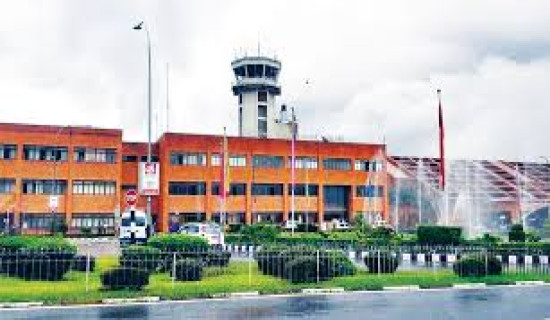- Saturday, 28 February 2026
Cure Medical Education
Medical education is perhaps the most rigorous academic pursuit that demands dedication, hard work and perseverance. Being a science-based education, medical study is time-consuming requiring sharp clinical skills to minutely assess the biological nitty-gritty of human and animal bodies. A dedicated medical student can fare better only when s/he enjoys sound pedagogic atmosphere backed by proper financial support, medical infrastructure including labs, experienced teachers and stress-free practicing hours. A medical student cannot become a good physician if his/her academic career is bogged down by incessant conflicts with college management over tuition fees, stipends and other incentives.
It is a matter of serious concern that Nepali medical students are often forced to cross swords with their college administration despite the fact that they pay exorbitant fees to pursue higher studies. Private medical colleges have earned notoriety for charging excessive fees and not creating the basic learning requirements. The situation gets worse when the colleges demand fees beyond the ceiling fixed by the government. A news report published in this daily on Sunday sheds light on nagging facets of medical education, which call for rational intervention from the state to fix them. The report states that the 2015 batch MBBS students of Gandaki Medical College (GMC) in Pokhara were in protests against the college for five days until April 24 for not providing stipends they are supposed to get while working as interns for the last five months.
Similarly, they called a shutdown of college and its hospital in 2019 after the management demanded fees in excess of government ceiling. The students have accused the management of blockading the stipends for not paying extra fees. Kathmandu Medical College (KMC) has compelled its newly admitted postgraduate students, through an agreement, to accept the situation even if the college fails to pay monthly stipend. This sort of problem is rife in the private colleges across the country. On April 20, resident doctors pursuing MD/MS/MDS in private medical colleges submitted a memorandum to the Medical Education Commission (MEC), demanding fair stipend and reasonable duty hours. They said they had to go through ordeals of working from 48 to 72 hours straight (even up to 128-140 hours a week).
As per the revised fee structure, the MEC has fixed Rs. 4,023,250 to study MBBS in colleges inside the Kathmandu Valley and Rs. 4,436,025 outside it. The fee of MD/MS/MDS (Clinical) has been set at Rs. 2,299,000 and MD/MS/MDS (Basic science) at Rs. 1,048,135. But the MBBS students have complained that the private colleges demand as much as Rs. six million in all from one student. Altogether 19 medical colleges are operating in Nepal, of which only five are run by the government. The private colleges argue that they are charging extra fees from students for the government’s fee structure cannot meet the huge costs made for building basic medical infrastructure.
They insist that they provide 10 per cent scholarships to the MBBS students and 25 per cent tax to the government but get no incentives from the state. It is true the private colleges do not get grants from the government but they should follow a fee ceiling that can be reviewed time to time on scientific and practical ground. It is necessary to solve the dispute related to medical fees permanently. If this sort of tension persists, the students cannot get a desirable learning environment, which hampers the national goal of producing qualified medical manpower.

















